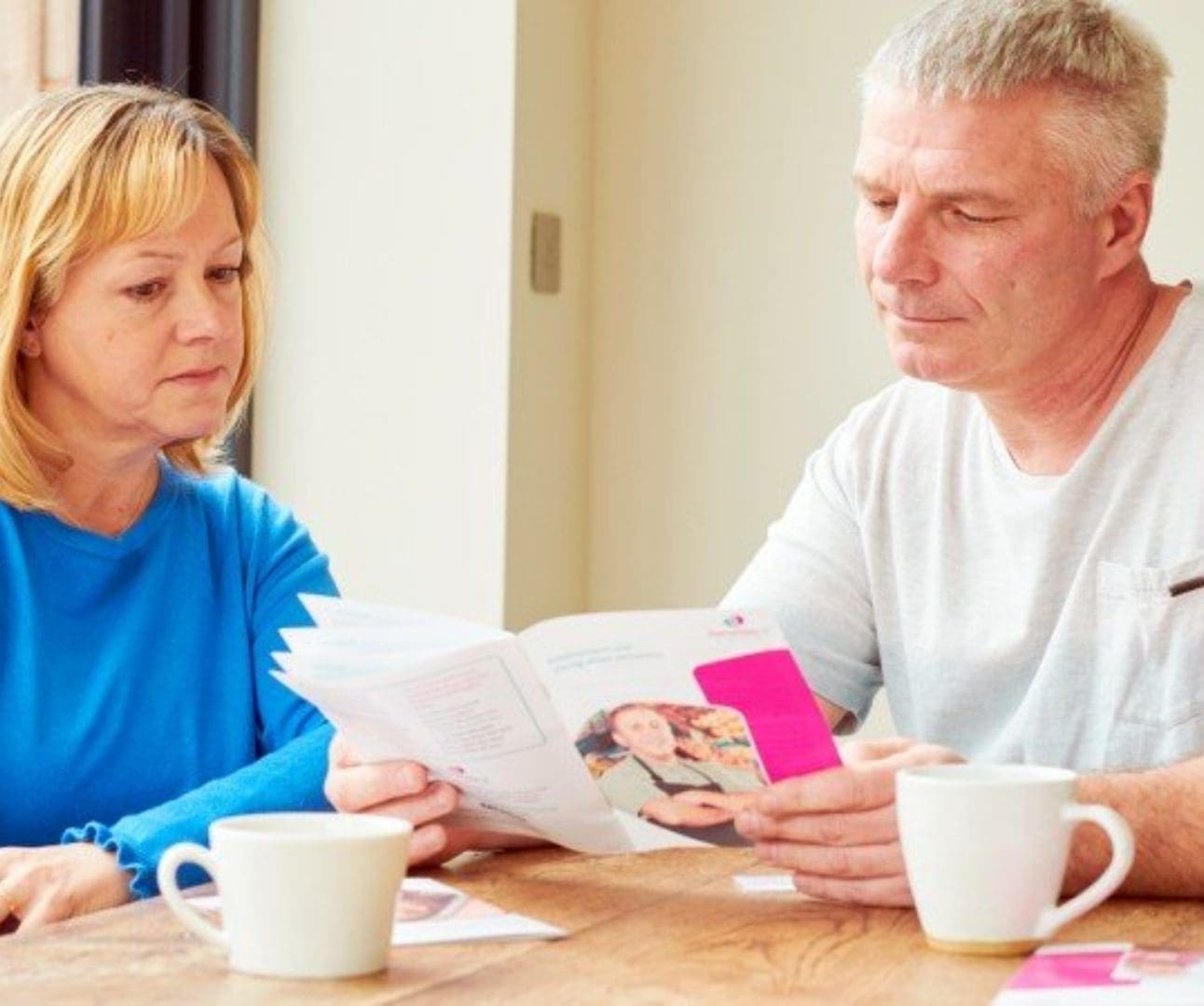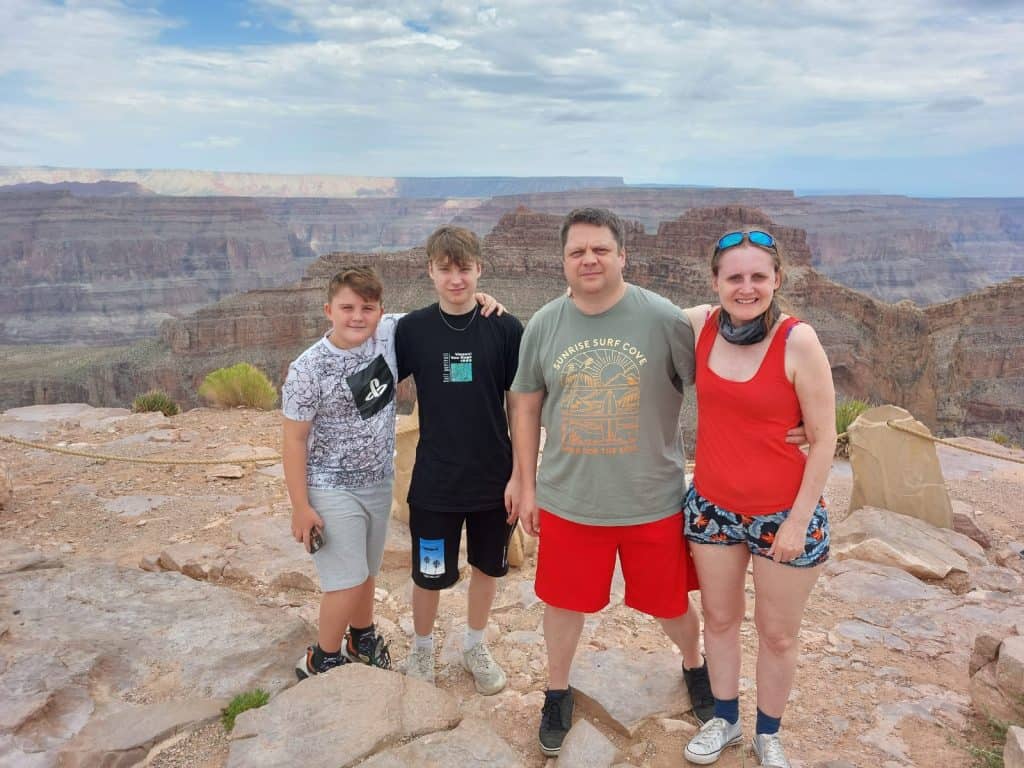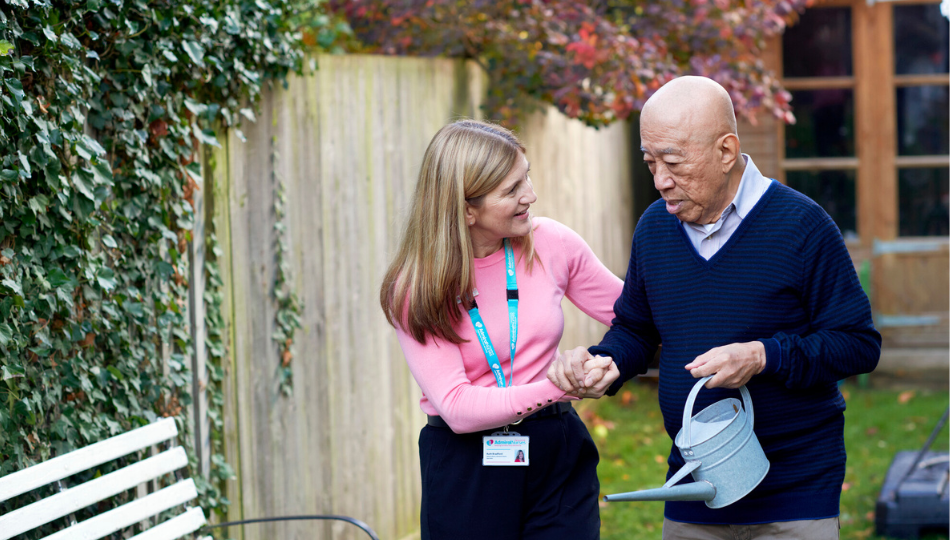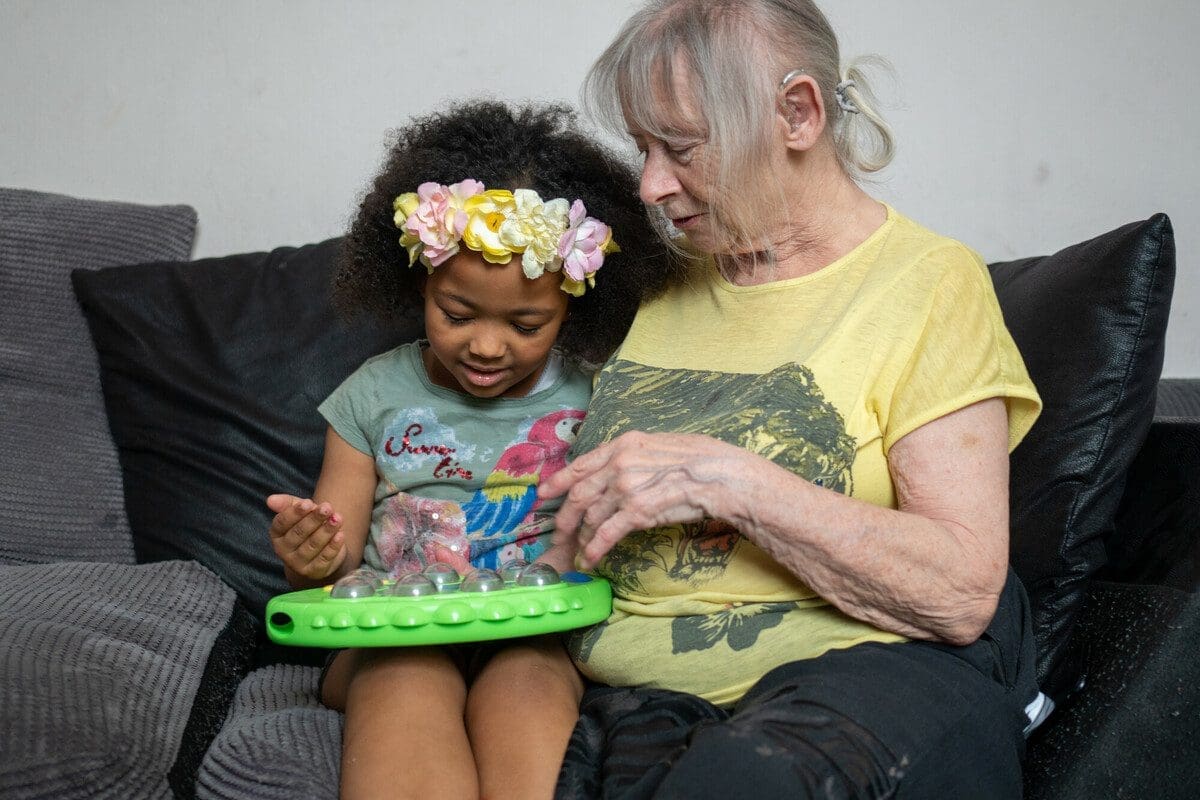
Young onset dementia
Information and resources about young onset dementia, where symptoms develop before the age of 65.
Gareth – whose partner Sarah, was diagnosed with frontotemporal dementia at the age of 48. – reflects on the challenges of caring for a partner with young onset dementia.

Sarah and I have been together for 23 years, and have two children, aged 21 and 12. She has always been quite an anxious person since losing her mum suddenly when she was 12. She always found it very difficult to talk about emotional issues.
In 2019, Sarah and I both lost our jobs. I noticed that she was behaving differently but thought it was because we’d had a difficult year. Later, towards the end of 2020, Sarah got a new job and started working from home. It was then that I realised she was struggling with day-to-day tasks that she would usually have managed. She was just 46 at the time.
I also noticed that Sarah’s driving was affected. We were in the car one evening and Sarah didn’t know how to turn the full beams on. I asked her to pull over so that I could help, but she couldn’t seem to slow down enough. My son physically had to put his hand on the brake to make the car stop. That’s when I knew something wasn’t right and booked an appointment with the GP.
The GP referred Sarah for a memory test, which she passed – but I now know that the test isn’t always suitable for people with frontotemporal dementia as memory loss isn’t always one of the first symptoms.
Sarah was diagnosed with stress and anxiety and signed off work in 2021, but when she had a follow-up scan, it revealed deterioration in the front of her brain. And after a number of other scans and tests, she was formally diagnosed with frontotemporal dementia in October 2022, aged just 48.
When we got the diagnosis, we were left to our own devices. I spent over 100 hours researching dementia and creating a spreadsheet of everything I needed to consider so I was as prepared as possible for the future.
Dementia impacts your life in a different way when you’re younger than it might when you’re older. We had so much life left to live and things we wanted to do. I still have to work full-time whilst caring for Sarah, and our children have also been impacted. Our 21-year-old son is at university and worries a lot about whether his mum’s condition is progressing whilst he is away. Our 12-year-old sees his mum declining through day-to-day things like Sarah forgetting to pack enough lunch for him to take to school or waking him up in the middle of the night for no reason. She can no longer verbally communicate which is hard for all of us.
I make sure I talk to the boys and encourage them to open up as much as possible. Euan, our youngest son, asked me if his mum would be still alive this time next year. I can’t always give them the answers they would like, but I reassure them as best I can and let them know I am here for them.
It’s so hard to know who to contact for support after a dementia diagnosis. I came across the Dementia UK website and gave the Helpline a call, and they referred me to a young onset dementia specialist Admiral Nurse, Jules, and we started meeting once a month.
A lot of the support I get from Jules is emotional. I didn’t necessarily realise I had become a carer – as Sarah’s partner, I just felt like it was what I was supposed to do. I often feel guilty that I’m not giving my family the support they need, but Jules has given me the strength and confidence to know that I’m doing all I can. She has helped me recognise that I need to look after myself too, and get more professional support in place.
I’ve gone through some tough times in my life, but none of it compares to the sheer exhaustion of looking after my partner, family and working full-time. But it’s been really valuable to speak to someone who specialises in young onset dementia and understands what we’re going through as a family.

Information and resources about young onset dementia, where symptoms develop before the age of 65.

Help us raise vital funds, improve care and support for families facing dementia and spread the word about our specialist dementia nurses.

Sharing your story with Dementia UK can help to inspire and reassure others who may be going through similar things.